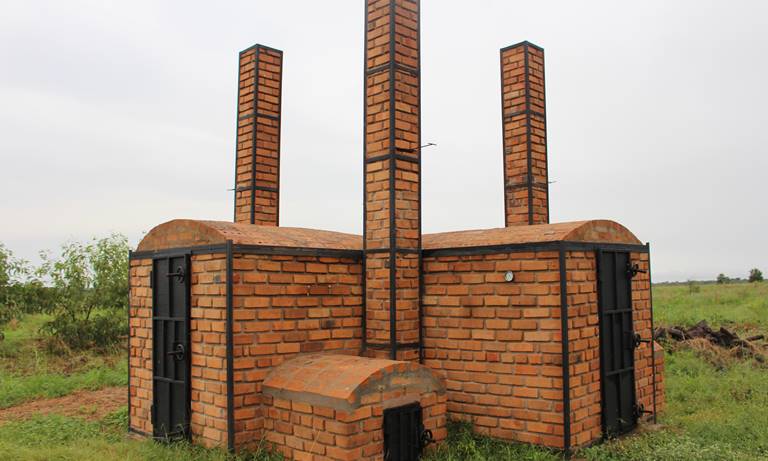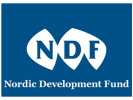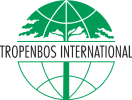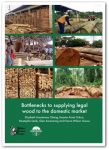Efficiency Enhancement and Entrepreneurship Development in Sustainable Biomass
Background
Wood fuel is one of the main products of the forests. Approximately 60% of the world’s total wood removals from forest and outside forests are used for energy purposes. About 90% of these are obtained directly from the natural forest with the remaining 10% obtained from wood waste such as logging and sawmill residue. In Ghana, about 80% of people depend on wood fuels such as firewood and charcoal for cooking and other basic use in addition to commercial, industrial and institutional use.
However, the method of producing one of the most common sources of energy, charcoal, in Ghana is mainly through indiscriminate logging and inefficient traditional system of burning the wood. This leads to emissions of methane and other Green House gases into the atmosphere due to incomplete combustion, thus contributing to climate change. Beside the climate change impact of traditional charcoaling, the traditional system relies mainly on naturally growing trees. Undoubtedly, charcoal burning is one of the reasons for the fast deforestation in Ghana and the increasing advancement of Savannah to the south and the desert to Northern Ghana. Nevertheless, it has been realized that, the emissions and the indiscriminate felling of trees can be mitigated through an improved technology and plantation establishment.
The project aimed to create job opportunities in sustainable charcoal production in efforts to fight poverty, reduce GHG emissions and decrease illegal wood harvesting. It sort to build and implement efficient, affordable and environmentally friendly charcoal production technology that is easy to operate and maintain.
Achievements
Partnered by African Plantations for Sustainable Development (APSD), Nature and Development Foundation (NDF) and Poyry, seven (7) charcoaling kilns were built for communities around the APSD plantations. In addition, the project undertook measures to ensure a sustainable source of biomass for the production of charcoal by establishing dedicated plantations and training local stakeholders to maintain and utilize the plantations. Specifically, each of the communities with Kilns were also assisted to establish a thirty (30) hectares of plantations of which they feed the kiln in a three (3) year circle.For more details on enhancing sustainable wood fuel production, visit www.ndf.fi.



